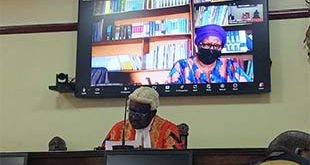
KAMPALA, UGANDA| THE INDEPENDENT | Suppliers of Uganda Revenue Authority (URA) have been briefed on the new URA online bidding systems and the updated Public Procurement and Disposal of Public Assets Authority (PPDA) Act.
This follows numerous supplier concerns regarding previous processes.
Kenneth Namanya, URA’s Database Manager informed suppliers that URA has fully automated its procurement and disposal processes, now entirely online.
Namanya noted this is accessible through the Hi-Supplier portal and the main URA portal. “On this platform, users can open personal accounts, add bank details, manage purchase orders, submit bids, sign documents, view goods delivery notices, create and upload invoices, and track payments without interacting with URA staff,” he explained.
Namanya added that while these tasks were previously conducted in person, the online approach addresses past challenges in the bidding process. “Even pre-bids will be done transparently online. Our goal here is to promote transparency, save time, and reduce costs,” he said.
Ruth Chebet, URA’s Assistant Commissioner for Procurement, emphasized the authority’s aim to work with partners who deliver effectively, ensuring timely, cost-effective, and quality outcomes. “We’re not just looking for suppliers who deliver once and leave. We seek strategic sourcing with sustainable quality. Prioritize quality, cost, and timeliness within our fixed budget,” she advised.
Uthman Ssegawa, Legal Director at PPDA, explained that the amended PPDA Act provides robust support for suppliers in their dealings with the government, starting with mandatory due diligence by Ministries, Departments, and Agencies (MDAs) before contract signing. “Once a Best Evaluated Bidder (B.E.D) notice is displayed, no cancellations are allowed. Previously, contracts could be canceled after being awarded, but this is no longer permitted—suppliers should take note,” he clarified.
Ssegawa stressed that the amended law mandates MDAs to complete all necessary evaluations, and once a B.E.D is determined, cancellations are off the table.
He also highlighted the new advantage for Ugandan suppliers with National Identification Numbers (NIN) in competition with foreign firms. “Ugandan bidders can provide their NIN and IDs to request preference in bids for works and non-consultancy services. Specific supplies are reserved for Ugandan and resident suppliers,” he said. Additionally, URA can now request quotes from manufacturers or agents without undergoing a formal procurement process.
Another legal benefit is the flexibility to extend bid validity dates. Suppliers can now notify entity accounting officers in writing to extend bid dates instead of seeking permission, allowing for smoother transactions.
Furthermore, bid evaluation timelines have been streamlined: from 20 to 10 working days for supplies in works and non-consultancy services, and from 40 to 15 days for works, with financial bid opening reduced from a week to three days.
Ssegawa also noted that in cases where two or more suppliers tie during disposal, entities may call for a rebid under the new disposal regulations. “If this happens, suppliers can request a rebid,” he explained.
Finally, Ssegawa emphasized that the amended law requires suppliers to be environmentally and socially responsible in their operations.
****
URN
 The Independent Uganda: You get the Truth we Pay the Price
The Independent Uganda: You get the Truth we Pay the Price


